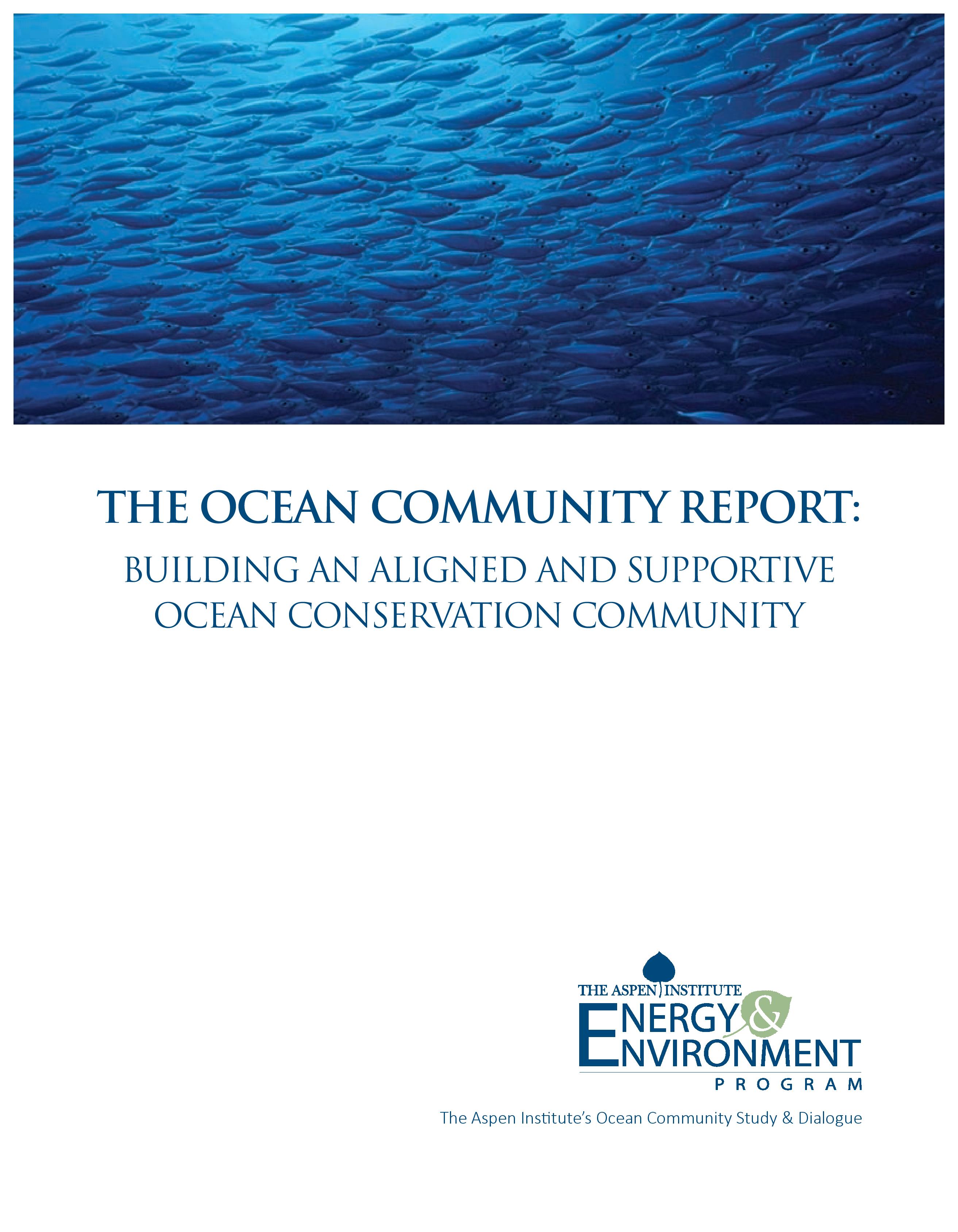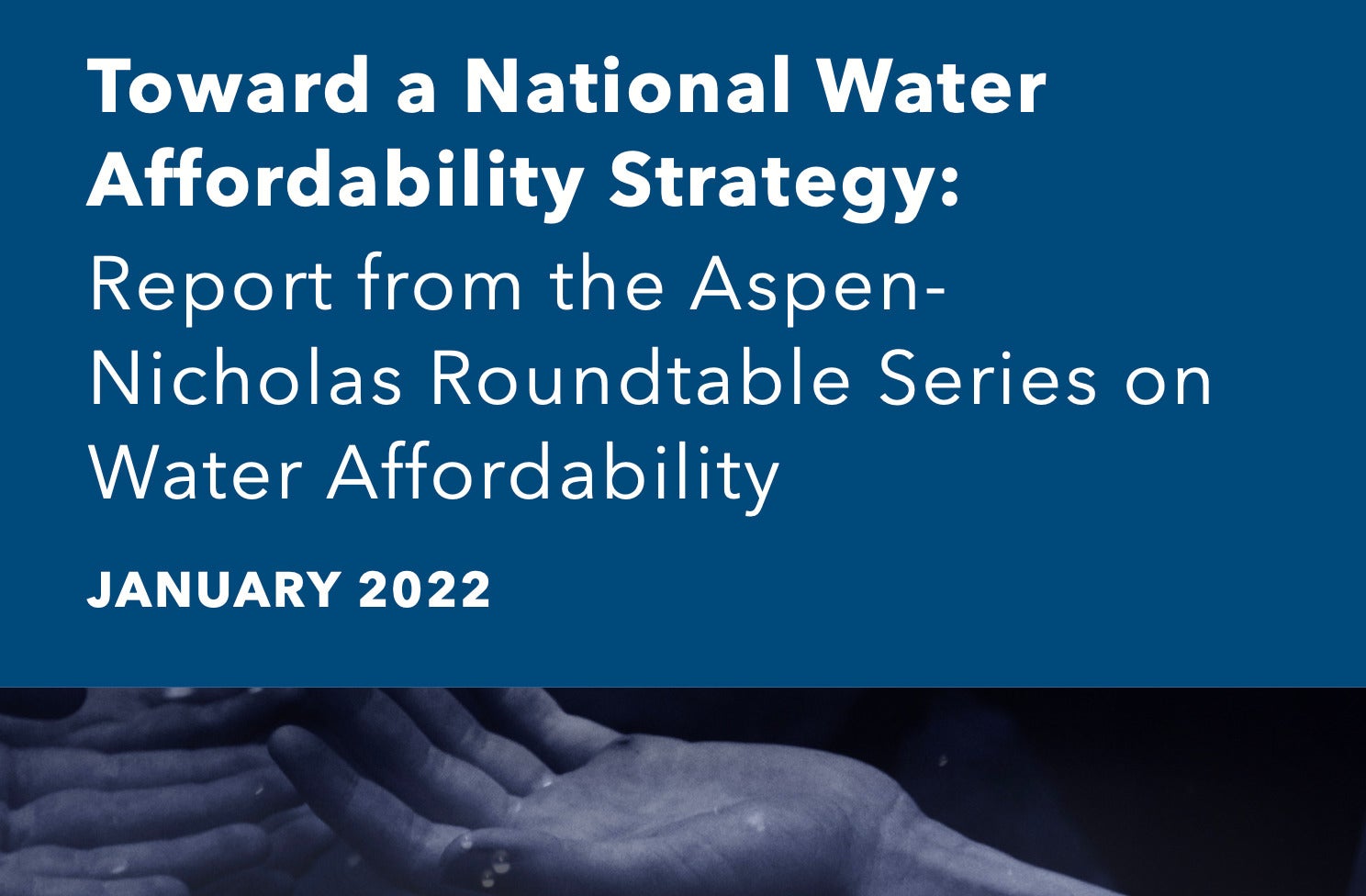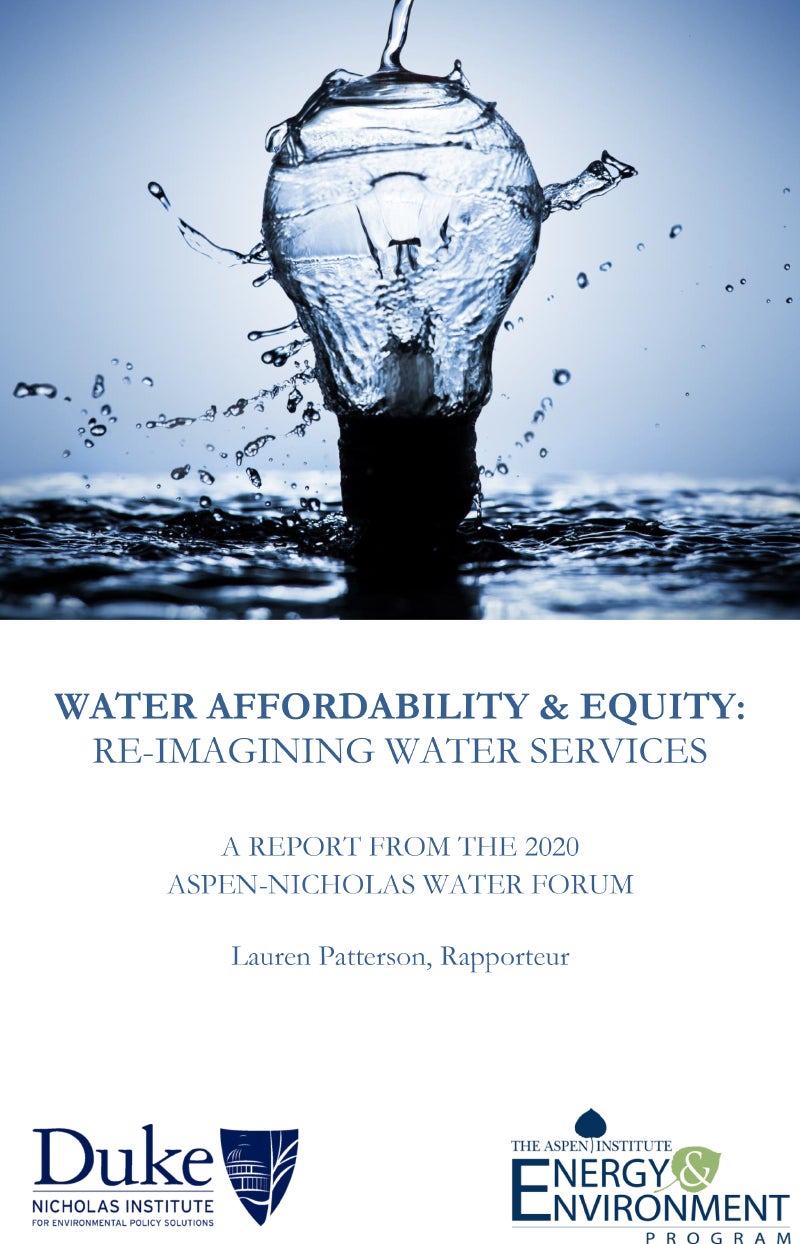The Aspen Institute Energy & Environment Program’s Ocean Community Report: Building an Aligned and Supportive Ocean Conservation Community is focused on the success and efficacy of ocean conservation and marine protection planning, based on a year-long study of strategies for building a more coordinated and aligned marine conservation movement.
The Ocean Community Report targets several key areas of opportunity in which the ocean conservation community can improve its efficacy. These opportunities include strengthening collaboration between conservation groups (and creating funder incentives to do so) and developing an information clearinghouse for the community through which efforts can be aligned. The report also highlights the importance of improving communications by reframing conservation within other nationally prioritized issues such as economic development or food security, including the voices of unorthodox stakeholders, and training political and business leaders to become informed spokespeople for conservation.
This report is a product of the Energy & Environment Program’s Ocean Community Study & Dialogue, a year-long study of opportunities for improving the design and implementation of spatial management strategies and policies that can reduce the impact of overfishing on ecosystems and fisheries biomass. In this study, the Aspen Institute partnered with Duke University’s Nicholas Institute for Environmental Policy Solutions and the Institute’s own Advocacy Planning and Evaluation Program to survey recent funding, policy and advocacy related to establishing marine protected areas.
Adding to the findings in these studies, the Institute also convened an in-person, multiday dialogue at Fort Baker, California, in December 2012 among some thirty members of the ocean conservation community, including major funders, marine scientists, policymakers and conservation leaders.
This initiative built on the Institute’s previous work on conservation and marine protection, including the Aspen Dialogue and Commission on Arctic Climate Change, and Dialogue Series on Conservation in the 21st Century. The Energy & Environment Program is now developing initiatives on scaling marine spatial planning, the role of sustainable fisheries in food security, and the impact of climate change on our oceans.


